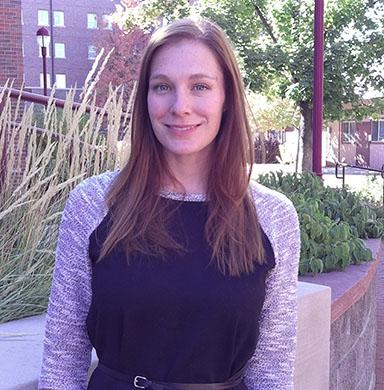Annual CAHSS Faculty + Community Event Highlights DU Professors’ Influential Work

The annual CAHSS Faculty + Community event features brief “lightning talks” by four CAHSS faculty members whose recent work and research has positively impacted the public good at DU and within the broader community. This year’s event will be held Thursday, March 9, at 6 p.m. in Sturm Hall, Room 286. The discussion will also be livestreamed on Zoom.
This year’s panelists and their topics include:
Jared Del Rosso, associate professor, Sociology & Criminology, “Teaching Toward Hope: What We Can Learn from the Study of Denial."
Del Rosso will speak about personal and collective denial, based on his book “Denial, How We Hide, Ignore, and Explain Away Problems,” a culmination of his research and the subject of his undergraduate course, “Sociology of Denial.” The tendency to protect ourselves from embarrassment by tuning out hard personal truths leads to the perpetuation of misinformation and patterns of violence and inequality. Manifestations of such denial include the downplaying of photographic and video evidence in the murder of George Floyd, attempts to undermine the validity of the January 6 hearings by calling them partisan and ongoing denial of climate change. But although denial remains pervasive and systemic, through heightened awareness we can choose to disrupt it.
Rafael Fajardo, associate professor, Emergent Digital Practices, "Artful Games // Gameful Art."
During his sabbatical, Fajardo was invited to spend a month at the Anderson Ranch Arts Center to work on his next artist’s game and to serve as their inaugural Latinx Visiting Artist. In addition to dedicated time for his practice he consulted on evergreen curriculum about his past work for the Roaring Fork Valley school district. He will share some reflections and outcomes from his time there. Fajardo’s ongoing efforts to help transform the video game world into a socially conscious medium that captures his passion for art and social justice include the struggles of the immigrant experience and issues related to the war on drugs. The San Antonio native has been sharing his multidisciplinary, collaborative approach to creating video games with DU students since 2002. His games, which have been shown alongside paintings and sculptures in museums and galleries worldwide, combine a critical and artistic sensibility that elevates them from the commercial to the artistic.
Carol Helstosky, associate professor, Department of History, "Students as Researchers: Preserving the Life Histories of Colorado Veterans."
For the last five years, Helstosky has been teaching courses and supervising independent research on the lives and legacies of veterans including those buried at Denver’s Fort Logan Cemetery as well as the unclaimed remains of U.S. veterans. Recently, Helstosky has taught classes in which students collaborate with Vietnam veterans to locate and properly inter the remains of Colorado veterans. She is currently working with students to record and preserve the life histories of veterans, including DU Veteran students. Helstosky will explain how these projects have impacted students and veteran communities.
Paige Lloyd, assistant professor, Department of Psychology, “Examining Race Disparities in Pain Care from a Social Psychological Perspective."
Lloyd will speak about her recent NIH grant to study racial discrepancies in pain care. Not all doctors treat their patients equally when it comes to pain management, especially when it comes to people of color and mixed race. Lloyd will discuss her research to explore racial biases in pain care that includes placing CU Anschutz medical students in a faux emergency-room setting during which they interact with hypothetical patients of different races experiencing pain. The research seeks to understand exactly where biases exist in order to recommend better pain intervention strategies at medical schools, expose students to more racially diverse environments and lead to better interventions with multiracial patients.






